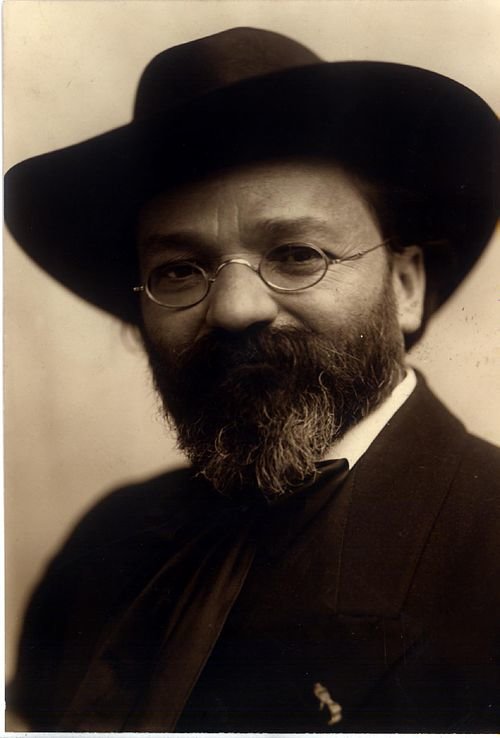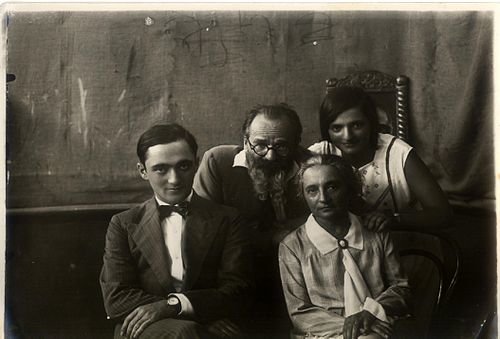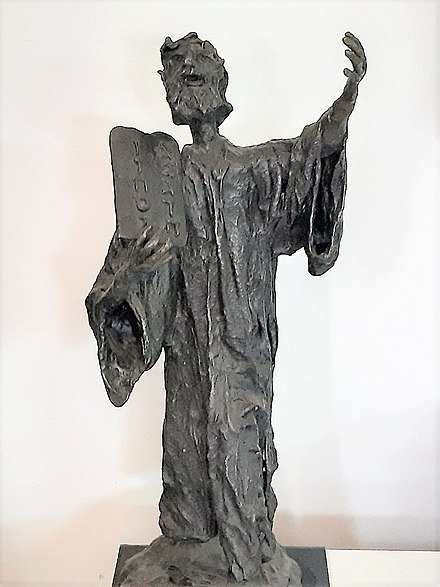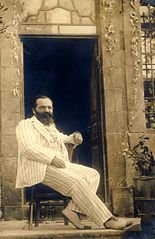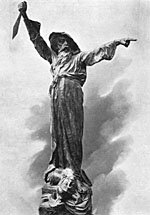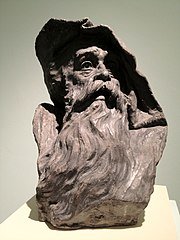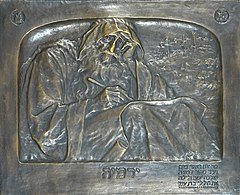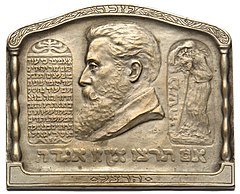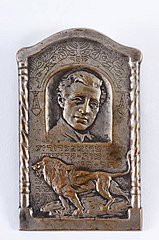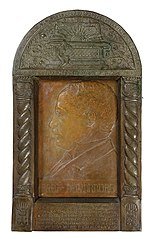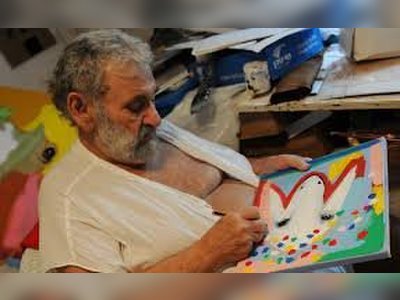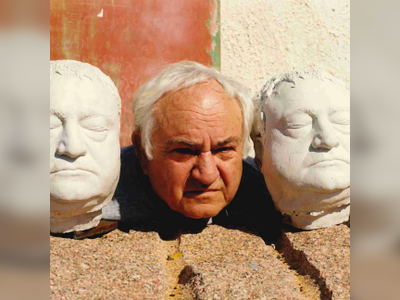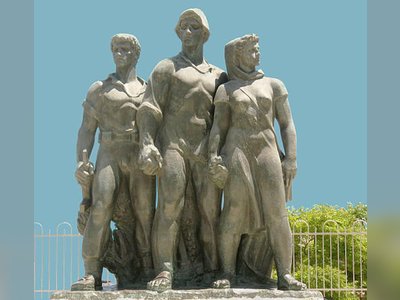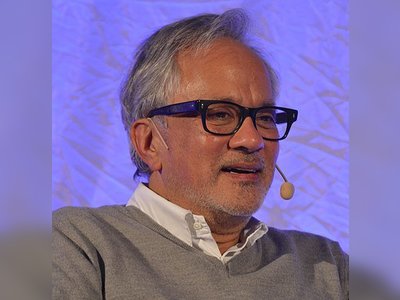מורשת גדולי האומה
בזכותם קיים
beta
Boris Schatz: The Visionary Artist Who Shaped Jerusalem's Cultural Landscape
Boris (Shlomo Zalman-Dov Baruch) Schatz, born on December 4, 1866, in Varniai, part of the Russian Empire (now Lithuania), was a Jewish painter and sculptor who left an indelible mark on the cultural and artistic landscape of Jerusalem. He was the founder of Bezalel Academy of Arts and Design in Jerusalem, which later evolved into the Israel Museum.
Legacy in Jerusalem
Boris Schatz's impact on Jerusalem is profound and enduring. A street in the city bears his name, connecting the bustling King George Street with Samuel HaNagid Street, in close proximity to the Bezalel buildings that house the Bezalel School of Architecture today.
Early Life
Born as Shlomo Zalman-Dov Baruch in Varniai, Lithuania, Boris Schatz was sent to study at a yeshiva in Vilnius by his father, a teacher, at a young age. However, he left the yeshiva shortly thereafter and distanced himself from his family. Schatz pursued his passion for art, studying painting and sculpture in Vilnius and Warsaw. In 1889, he married Jenny, and the couple soon moved to Paris.
Parisian Sojourn
In Paris, Schatz studied sculpture under Mark Antokolsky and painting under Fernand Cormon. He also attended the Academy of Fine Arts in Paris. To support himself, Schatz took various temporary jobs in the city, which eventually led to his artistic career.
Bulgarian Commission
In 1895, Schatz received a commission from Ferdinand I of Bulgaria to serve as the royal court sculptor and establish the Royal Academy of Art in Bulgaria. He accepted the offer and played a pivotal role in the foundation of the academy, serving as its head from 1895 to 1906. In 1900, Schatz was awarded the Gold Medal for his sculpture "Elderly Head" at the World Exhibition in Paris.
Shift Towards Zionism
In 1923, Boris Schatz had a transformative encounter with Theodor Herzl, igniting his passion for Zionism. One of his key concerns was finding ways to provide livelihoods for Jewish immigrants in Palestine. He proposed a plan to train immigrants to produce artistic crafts for export to Europe, but this idea never materialized.
In 1906, Schatz initiated the founding of the Bezalel School of Arts and Crafts in Jerusalem, later known as Bezalel Academy of Arts and Design. He chose the name "Bezalel" after the biblical artist and artisan Bezalel ben Uri, who constructed the Ark of the Covenant. He even designed the building himself. This institution became the cornerstone of the artistic community in Jerusalem, nurturing young talents and promoting the arts in the region.
Personal Life
Boris Schatz's personal life was marked by a series of relationships. After divorcing his first wife, he married Dr. Olga Pavzner, an art critic, and had two children, Bezalel and Zahara.
Legacy and Contribution
Boris Schatz's dedication to art and his vision for a vibrant cultural hub in Jerusalem has left an enduring legacy. He organized exhibitions for his students in Europe and the United States, making them the first Israeli artists to exhibit abroad. Additionally, he played an active role in organizing the labor movement among artists and artisans in Jerusalem, promoting their professional and social interests.
Scholarly and Artistic Works
Schatz's artistic works primarily drew inspiration from biblical themes, reflecting the revival of Jewish identity and culture. He believed that art could capture the spirit and history of the Jewish people. Notable works include sculptures of the Maccabees and depictions of biblical figures.
Passing and Burial
Boris Schatz passed away on March 23, 1932, while on a fundraising trip in Denver, Colorado. In his will, he requested not to be buried in Israel, but his remains were brought back to Jerusalem and interred on the Mount of Olives in October 1932, overlooking the city he had worked tirelessly to enrich culturally.
Boris Schatz's vision and contributions to the arts, culture, and Zionism continue to influence Israel's cultural landscape and serve as a testament to the power of art to inspire and shape a nation's identity.
- בוריס שץhe.wikipedia.org
